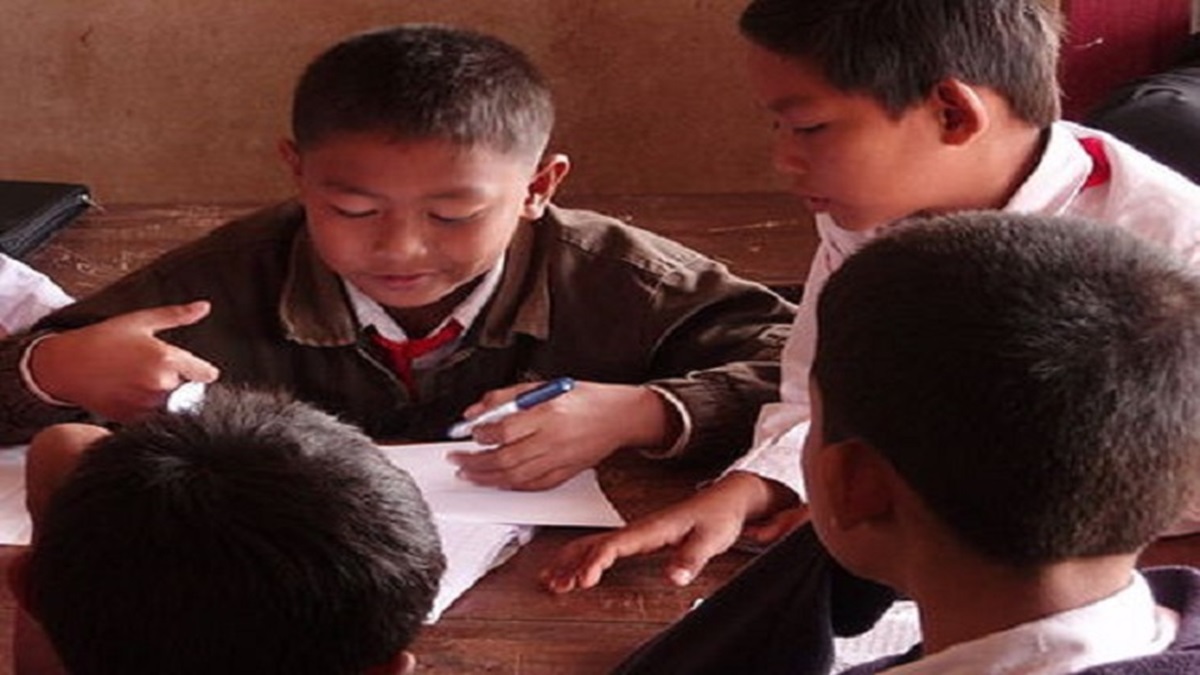On April 16, the Maharashtra education department announced the adoption of NEP 2020, which includes a three-language formula requiring students in Marathi and English-medium state schools to study Marathi, English, and Hindi from Class 1.
Maharashtra’s phased implementation of the National Education Policy (NEP) 2020, set to begin in the 2025-26 academic session, has hit a roadblock as the state’s Language Advisory Committee strongly opposes the mandate to introduce Hindi as a compulsory third language for students in Classes 1 to 5. The committee’s stance, articulated in a letter to Chief Minister Devendra Fadnavis, has sparked a heated debate, placing the BJP-led Mahayuti government on the defensive.
On April 16, the Maharashtra education department announced the adoption of NEP 2020, which includes a three-language formula requiring students in Marathi and English-medium state schools to study Marathi, English, and Hindi from Class 1. The policy aims to align with the NEP’s vision of promoting multilingualism and national integration. However, the Language Advisory Committee argues that imposing Hindi at such an early stage is “neither academically justified nor in tune with students’ psychology,” potentially overburdening young learners and sidelining regional linguistic priorities.
This opposition marks Maharashtra as the second major state after Tamil Nadu to resist the NEP’s three-language mandate, highlighting tensions over linguistic identity and educational autonomy. The committee’s concerns echo sentiments from regional political parties and cultural groups, who view the move as an imposition of Hindi that could undermine Marathi language and culture. Maharashtra Navnirman Sena (MNS) chief Raj Thackeray has vehemently criticized the policy, labeling it an attempt to “Hindi-fy” the state and threatening protests if the decision is enforced. “Marathi will remain mandatory in Maharashtra. We will not allow the sale of Hindi curriculum books if this is imposed,” Thackeray stated in a recent post on X.
The Congress and NCP (SP) have also condemned the decision, with Congress leader Harshawardhan Sapkal calling it a “ploy to destroy Marathi language, identity, and culture.” Shiv Sena (UBT) chief Uddhav Thackeray, while expressing respect for Hindi, questioned the necessity of forcing it on young students, arguing that it could dilute the focus on local languages. “Why impose Hindi when Marathi and English are already part of the curriculum?” Thackeray asked at a recent event.
Defending the policy, Deputy Chief Minister Ajit Pawar dismissed the opposition as politically motivated, asserting that “Marathi will remain the number one language in Maharashtra.” Pawar emphasized that the three-language formula aligns with the NEP’s goal of fostering national unity through linguistic diversity, and accused critics of “having no other work” but to stir controversy.
The NEP rollout in Maharashtra follows a phased approach, with the new curriculum, including the three-language formula, set to begin for Class 1 in 2025-26, followed by Classes 2, 3, 4, and 6 in 2026-27, and further classes in subsequent years. The policy also introduces a 5+3+3+4 educational structure, replacing the traditional 10+2 system, to emphasize foundational learning and holistic development. However, the current language row threatens to delay or alter these plans, as the state government faces mounting pressure to reconsider the Hindi mandate.
Educationists and parents are divided on the issue. Some argue that early exposure to Hindi could enhance students’ linguistic skills and national connectivity, while others fear it may strain young learners and marginalize Marathi in its home state. “The focus should be on strengthening Marathi and English proficiency first, with Hindi introduced at a later stage,” said Dr. Anjali Deshmukh, a Mumbai-based education consultant.
As the debate intensifies, all eyes are on the Mahayuti government’s next move. Will it push forward with the NEP’s three-language formula or yield to regional sentiments by revising the policy? The resolution of this linguistic tug-of-war will likely shape the future of primary education in Maharashtra and influence similar debates across India’s linguistically diverse states.
Read More
Follow Shiksha.com for latest education news in detail on Exam Results, Dates, Admit Cards, & Schedules, Colleges & Universities news related to Admissions & Courses, Board exams, Scholarships, Careers, Education Events, New education policies & Regulations.
To get in touch with Shiksha news team, please write to us at news@shiksha.com


Abhay Anand is an experienced education journalist with over 15 years in print and digital media. Currently serving as Manager- Editorial at Shiksha.com, he specializes in higher education policy, student mobility,
Read Full Bio